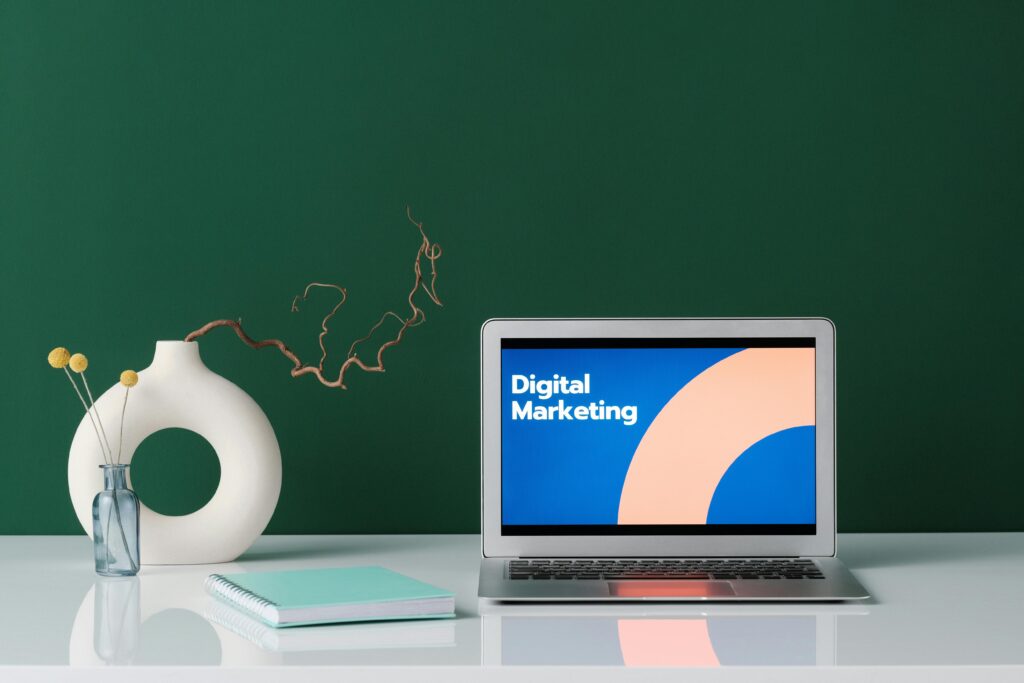
Photo by Mikael Blomkvist
When you decide to join the digital world of marketing, it may seem like a daunting task and that you need some experts in order to help and guide your course through the process. But if you do it right it is not very difficult at all. All you really need is a solid foundation, good processes, a team of professionals, data and resources. This is exactly what we are going to tell you about here as we discuss for you what makes up a digital marketing company. Before you get started with this topic let me first tell you why every business is today on the Internet.

Photo by Mikael Blomkvist
The term Digital Marketing has been developed over time and more specifically now, in 2017. Its origin goes back to 1973 when one of the founders called himself Mark Baack and he defined Digital Market Communication (DMC) as “a communication medium utilized by organizations to connect with their buyers, prospects and potential clients. According to him, DMC could be the primary source of information received from end consumers through which an organization could receive its objectives”. He later went on to explain how organizations could utilize DMC to reach out in a manner that would allow businesses to have direct interaction with people who had bought products or services and then sold them other products or services that were similar to those. In short, it was a way of getting customers involved in making decisions that affected them directly. These days many companies use different forms of online marketing through social media, emailing, content writing, etc.
So much so that nowadays, there are two main types of digital marketers: B2B and B2C. While we will talk about both in detail, for purposes of understanding where they come from, we can simply say that B2B refers to Business-to-Business advertising through traditional offline channels and these include newspapers, magazines, radio, television, and billboards while B2C refers to Business-to -Consumer advertising through platforms like search engines, mobile apps, websites, eBooks, applications, video-based campaigns, etc. The difference is only in form and that can be seen in the audience as well. So, because of the big differences between the two types of digital marketing, companies often choose various solutions based on which option would work best for them. For example, if your target audience is mostly young parents (B2B), you need to make sure your ads would work better on Facebook than Instagram to get sales. The same applies to B2C if you want the audience to buy into your product they like. Hence, no matter what type of audience you have, you should choose one solution that fits the customer needs and interests.

Photo by Mikael Blomkvist
The biggest challenge that most companies facing right now, especially newbie ones, is choosing between Web vs. Mobile Advertising. A lot of people prefer web content because of ease and convenience but if you think about it, we live in a modern era where everything can be found easily. Your choice lies with you how you want to present your brand with the options that will suit your target audiences. Nowadays, businesses can also put things behind the paywall and sell their contents to users through subscription models, which means that even if they don’t want to spend money, they can still access their favorite content without having to deal with annoying advertisements everywhere they go. If you are not interested in paying for advertisement or looking for ways to get around it, you can still leverage technology like artificial intelligence (AI) and machine learning tools to make your website look awesome in terms of functionality and quality. Then again, if someone uses his smartphone as a gateway to his computer, he doesn’t just sit there idling on it waiting for your advert to pop up. Instead, he opens the app he downloaded to view a movie, play games, read a text, listen to music, check weather and that’s it! So he can enjoy his free entertainment and still be able to earn some extra cash while doing it. That’s where a combination of both online and offline marketing comes handy as it offers multiple benefits, including the ability to promote your brand easily. And it’s the perfect strategy if you’re aiming at becoming an independent agency or a freelancer in the future.
As part of my master’s program I got an opportunity to get involved with some real case studies. One of them I got to do in 2018 was helping small businesses with SEO and paid traffic. We worked on integrating organic keywords and long-tail phrases in Google Ads to get high-quality visits from local search results. It gave us great insights into how effective our strategies were and showed us where improvements can be made to increase our overall rankings. Additionally, we shared our ideas with some experts in the industry. They helped us fine-tune our techniques while creating additional content and we also engaged a few bloggers to share our thoughts about SEO in general. Overall, working on projects like this allowed me to develop leadership skills in terms of planning, prioritizing, communicating and problem solving. I am thankful that my internship offered me an invaluable insight into the possibilities of combining both online and offline marketing and implementing it to my advantage.



Leave a Reply